College of Fisheries
Know about the College
To provide efficaciously skilled human resource; technical support; and outreach backup to the fisheries sector of the state, College of Fisheries, Guru Angad Dev Veterinary and Animal Sciences University, was established in April, 2008 to produce qualified fisheries professionals; to carry out basic, applied and adaptive research to achieve sustainable aquaculture production/productivity targets; and to disseminate the developed technologies to various stakeholders constituting the fisheries supply chain.
The College of Fisheries has five departments:
- Aquaculture
- Fisheries Resource Management
- Aquatic Environment
- Fish Processing Technology
- Fish Engineering
The college has competent experienced faculty and is well equipped with lab and farm facilities for taking up its teaching, research and extension programs effectually. The college offers the following academic programs:
- B.F.Sc. Degree Program (4 Years)
- M.F.Sc. Degree Program (2 years) – 4 Subjects (Aquaculture, Fisheries Resource Management, Aquatic Environment Management and Fish Processing Technology
- Ph.D. Degree Program (3 Years)– 4 Subjects (Aquaculture, Fisheries Resource Management, Aquatic Environment Management and Fish Processing Technology)
- Short Courses (1 Month) - 6 Areas (Ornamental Fisheries and Aquarium Science, Aquarium Fabrication and Maintenance, Fish Hatchery Management, Aqua Clinics, Fish Processing Technology, Fish Feed Formulation and Manufacturing)
The curriculum of the UG degree programme (B.F.Sc.) has been adopted as per recommendations of the 6th Deans’ Committee of the Indian Council of Agricultural Research (ICAR) w.e.f academic session 2025-26 and is divided into eight semesters. The first 6 semesters include coursework (theory and practical) related to various aspects of fisheries, including taxonomy, anatomy, physiology, biology, biochemistry, culture techniques, nutrition, breeding, disease management, aquatic ecology, aquatic animal health management, genetics, biotechnology, fisheries resource management, aquatic pollution, aquatic biodiversity, post-harvest technology, regulations and policies, marketing and trading, economics, statistical methods, extension education and swimming. During the last/4th year (7th and 8th semester), the B.F.Sc. students undergo ‘Student Ready Program’, including i) In-Plant Training (8-Weeks), ii) Rural Fisheries Work Experience (8-Weeks) and iii) Educational Tour (4-Weels/In & Outside State) during the 7th semester; and i) Experiential Learning Program ii) Skill Development and iii) Project Work & Seminar during the 8th Semester; to enhance the professional competency of the outgoing fishery graduates.
The curriculum of M.F.Sc and Ph.D. is also based on ICAR regulations (BSMA) covering advanced courses and basic/advanced research in the related/relevant subject, with thesis (M.F.Sc.)/dissertation (Ph.D) as an integral part of the degree program.
Tailor-made one-month short courses have also been initiated by the college in industry-oriented fields, to instil entrepreneurial skills among fishery and other aspiring graduates/youth/stakeholders, to promote fisheries as a potential sector for entrepreneurship/career advancement at regional, national and international levels. Fishery professionals i.e., graduates (B.F.Sc.) and postgraduates (M.F.Sc. and Ph.D.) and certificate holders are eligible to seek promising job opportunities in the public/ private sector in India i.e., State Fisheries Department, Fish Farmers Development Agencies (FFDAs), Colleges, Agricultural/Veterinary/Central Universities, Krishi Vigyan Kendra’s (KVKs), Fisheries Institute/Agencies, Banking Sector, Hatcheries, Aquaculture Farms, Feed Mills, Pharmaceuticals, Processing Plants, Trading, Export etc. Further, Fisheries professionals also possess great scope for higher studies and placement overseas. Nevertheless, there are vast opportunities for self-employment/entrepreneurship development in fisheries sector.
Mandate
- Impart quality education to develop professionally qualified and technically skilled human resource for the fisheries sector
- Take up basic, applied and adaptive research for developing advanced technologies to augment fish production/productivity from culture and capture aquatic resources
- Technology transfer to various stakeholders through awareness, demonstrations, trainings, capacity building/skill development programs and technical hand holding/consultancy.
Goals
- Human Resource Development
- Fish production and productivity enhancement
Dean, College of Fisheries
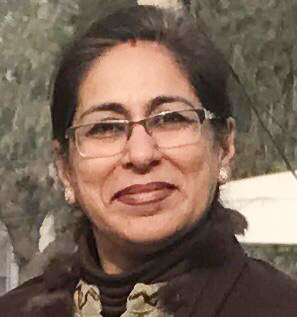
Dr. Meera D. Ansal
Address: Dean, College of Fisheries, Guru Angad Dev Veterinary and Animal Sciences University, Ludhiana
Email: deancof@gadvasu.in, fisheriescof@gmail.com
Call:+91-161-2414061, 2414053
Brief Introduction
Dr. Meera D. Ansal, Head, Department of Aquaculture, College of Fisheries, GADVASU joined as Dean of College of Fisheries on 15th September, 2020. After completing M.Sc. and Ph.D. in Zoology (Specialization: Fish & Fisheries) from Punjab Agricultural University (PAU), she joined as Assistant Professor (Fisheries) in 1999 in Institute of Agriculture, Regional Centre of PAU at Gurdaspur. She has made significant contribution in teaching, research, extension and institutional development. She has guided 11 M.F.Sc./Ph.D students and taught more than 20 UG/PG courses. Under ICAR’s prestigious Niche Area of Excellence Project (2010-2015), she played an instrumental role in aquaculture development in inland salt affected waste areas of south west districts of the State and was conferred with 'Best Success Story' award by the Indian Ecological Society. She is now working to develop ‘Climate Smart Aquaculture Technologies’ viz., diversification involving intercropping with high value species, growth promoting & immuno-stimulating herbal supplements and brood stock management for enhanced aquaculture productivity, without any additional pressure on already depleting multiple use water/land resources.
Recently, she earned an R&D project entitled “Establishment of Capacity Building Resource Centre for Intensive Aquaculture Technologies in Punjab- Recirculatory and Biofloc Aquaculture Systems” with 100% funding of 1.39 crores under PMMSY Center Sector Scheme (CSS) of Department of Fisheries (DoF), Ministry of Fisheries, Animal Husbandry and Dairying (MoFAHD), GOI, to promote intensive aquaculture technologies in the region. With 12 R&D projects and more than 200 publications including research papers, review articles, manuals, books, booklets, pamphlets and extension articles, to her credit, Dr. Meera has also been conferred with ‘Honorary Fellowship' of the Indian Ecological Society.
Former Dean
| Sr. No. | Name | Duration on the post | Date of Retirement | Photograph |
|---|---|---|---|---|
| 1. | Dr. Kamaldeep Kaur | 23-04-2008 to 31-12-2010 | 31-12-2010 | 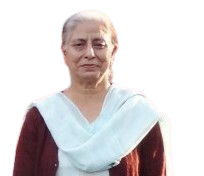 |
| 2. | Dr. Asha Dhawan | 12-01-2011 to 30-11-2017 | 30-11-2017 | 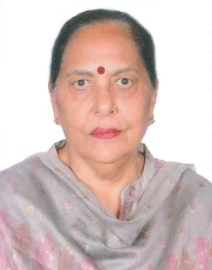 |
| 3. | Dr. Anil Kumar Puniya | 01-12-2017 to 08-01-2018 | 08-01-2018 | 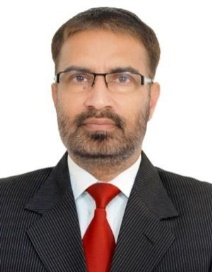 |
| 4. | Dr. Kulbir Singh Sandhu | 09-01-2018 to 14-09-2020 | 14-09-2020 | 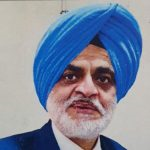 |
Facilities
- Smart Class Rooms well equipped with advanced audio-visual aids for quality education delivery system
- Lecture Hall - Capacity-100
- Committee Room
- College Library
- Laboratories well equipped with high-tech facilities for quality teaching and research.
- UG Practical lab
- Water Quality Lab
- Aquaculture Nutrition Lab
- Microscopy Lab
- Fisheries Resource Management Lab
- Aquatic Animal Health Management Lab
- Cell Culture Lab
- Aquatic Toxicology Lab
- Bioinformatics Cell
- Microbiology and Virology Lab (BSL-2 Facility)
- Fish Engineering Lab
- Fish Processing Technology Lab
- Other Facilties
- Fisheries Museum
- Aqua-House
- PG Student Chambers – 02
- Student Recreational Facility
- Faculty Recreational Facility
- Farm facilties- Adequate farm facilities for teaching ("STUDENT READY PROGRAM"- Experiential Learning and Skill Development), research, demonstration and capacity building at "Instructional cum Research Farm" spread over an area of 6 hectare
- Experimental Culture Pond - Nursery, rearing and stocking
- Demonstration Culture Pond- Semi-intensive Carp Polyculture Pond, Pangas Catfish Culture Pond, Integrated Fish cum Duck Fish farming Pond, Overwintering Pond, Brood stock Ponds, Polyhouse Ponds (Overwintering Facility
- Hatcheries - Circular Chinese Hatchery, Indoor Catfish/Murrel Hatchery, Portable Carp hatchery, Ornamental Fish Hatchery cum Aquarium House
- Different aquaculture Systems/Units -
- Recirculatory Aquaculture System
- Biofloc Aquaculture System
- Automated Aquaponics System
- Flow through System
- Green house
- Feed Mill with Extruder
- Duck Hatchery
- Live Food Culture Unit
- Quarantine Facility
- Azolla Culture Unit
- Waste Water Bioremediation Unit
- Vermicomposting Unit
- Herbal Garden
- Experiential Learning (EL) Modules
- Aquafarming
- Ornamental Fish Culture, Breeding and Seed production
- Fish Processing Technology
- Aquaculture Information Centre - Committee Room, Farmer Library, Technology Exhibition Room and Pantry
- Other Farm Facilities- Feed Stores, Field Stores, FRP Pools and aquaria
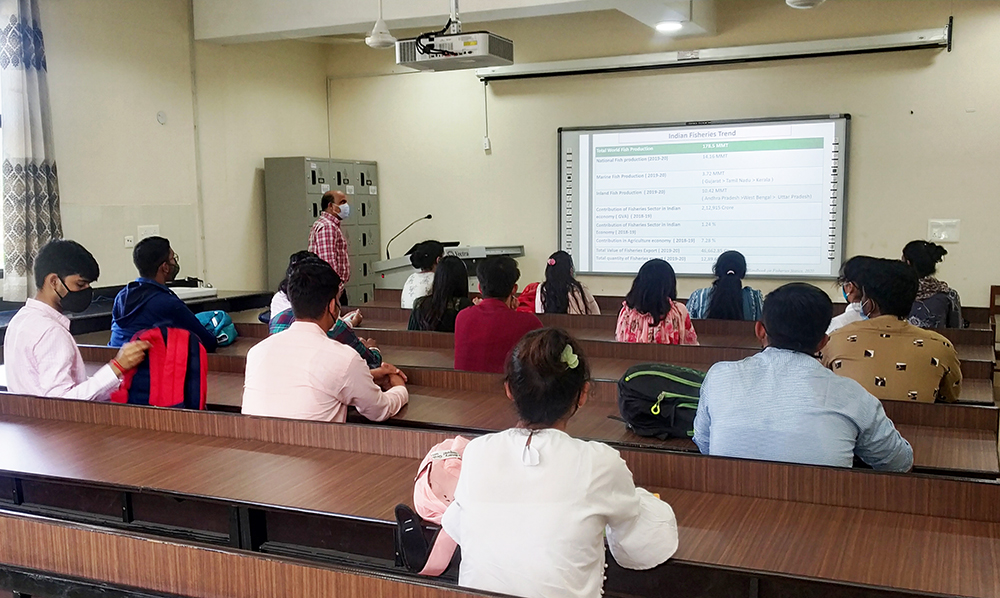 |
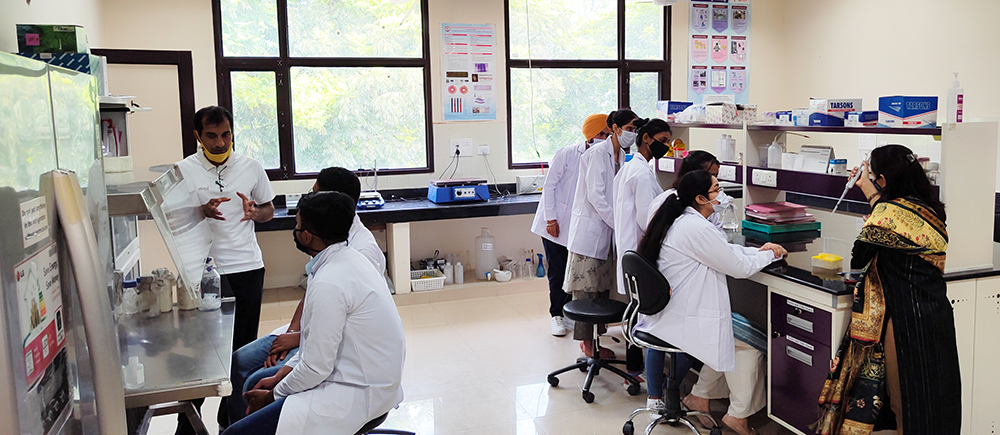 |
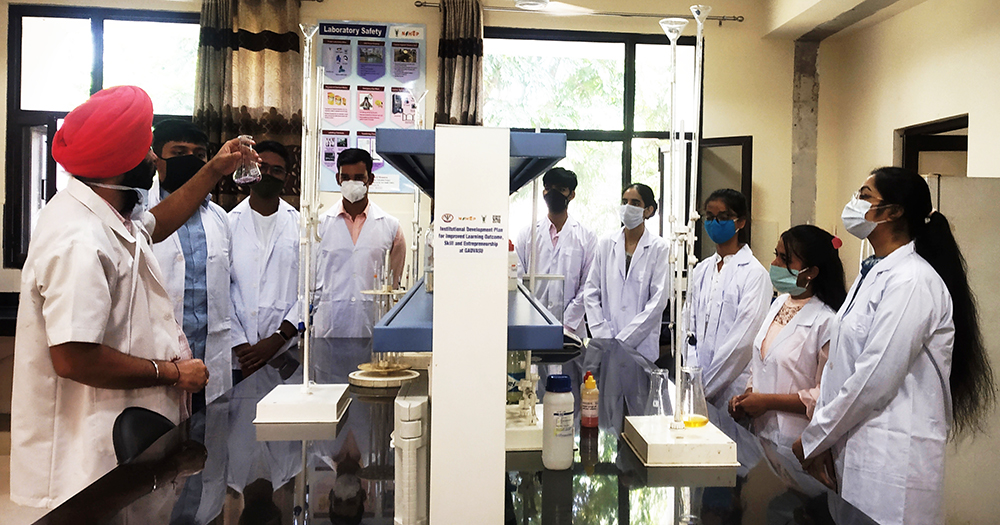 |
|
Smart Class Rooms |
Aquatic Animal Health Management Lab |
Water Quality Lab |
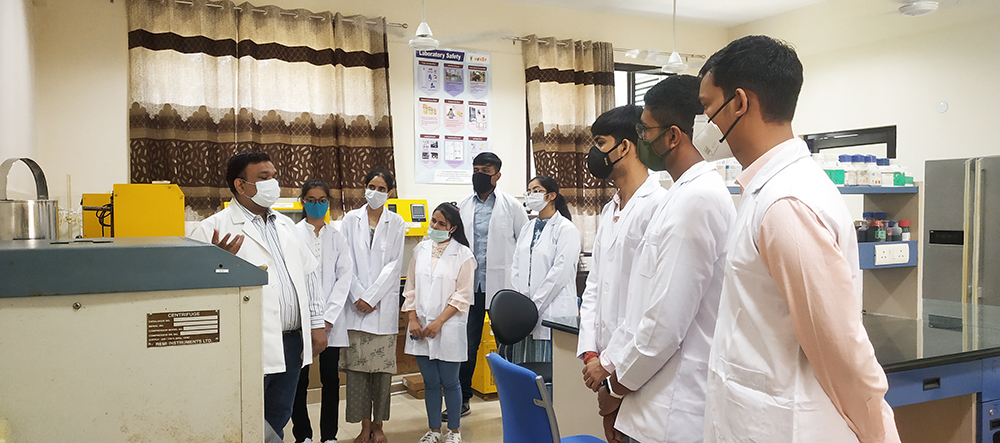 |
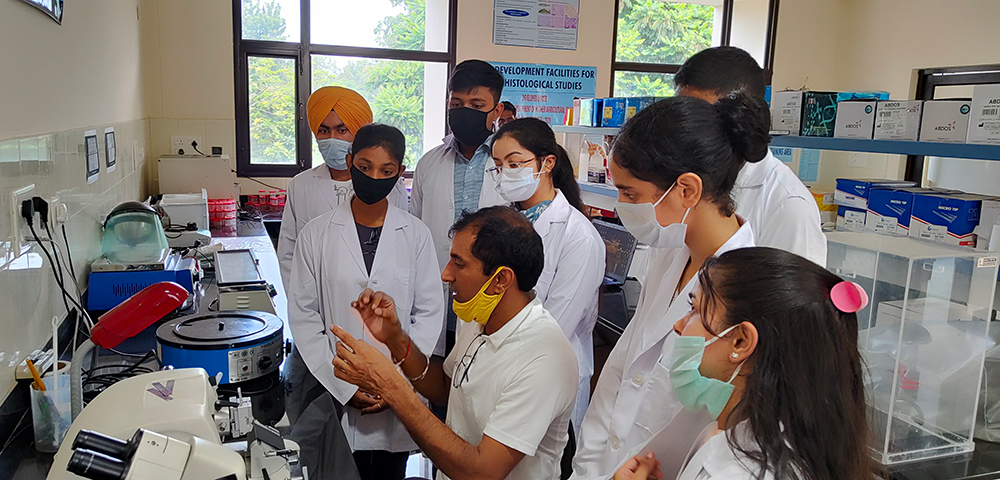 |
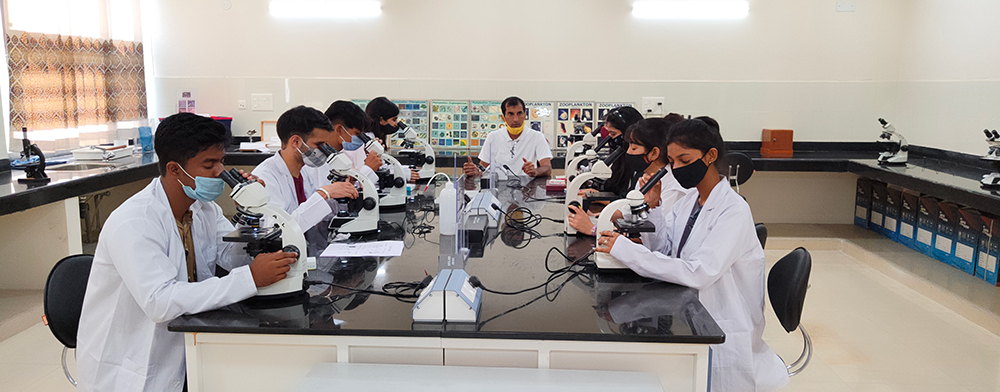 |
|
Aquaculture Nutrition Lab |
Aquatic Toxicology Lab |
Microscopy Lab |
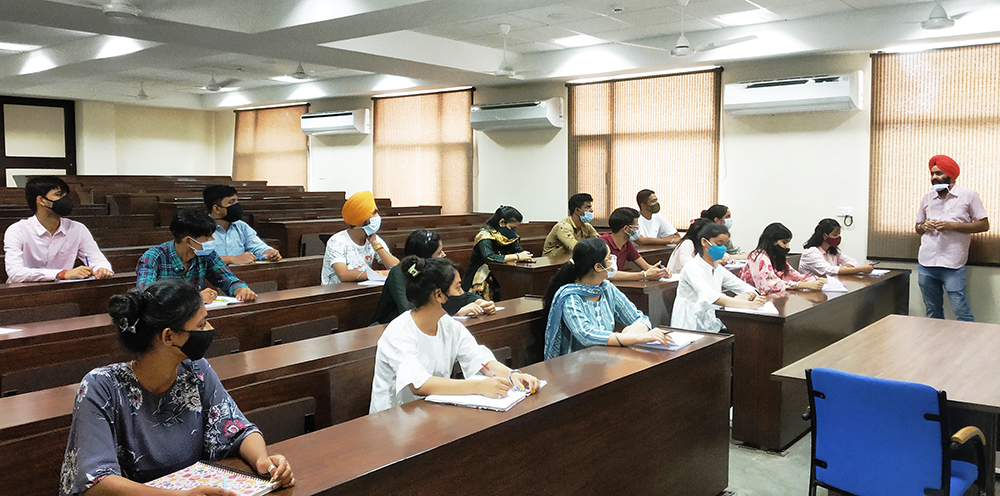 |
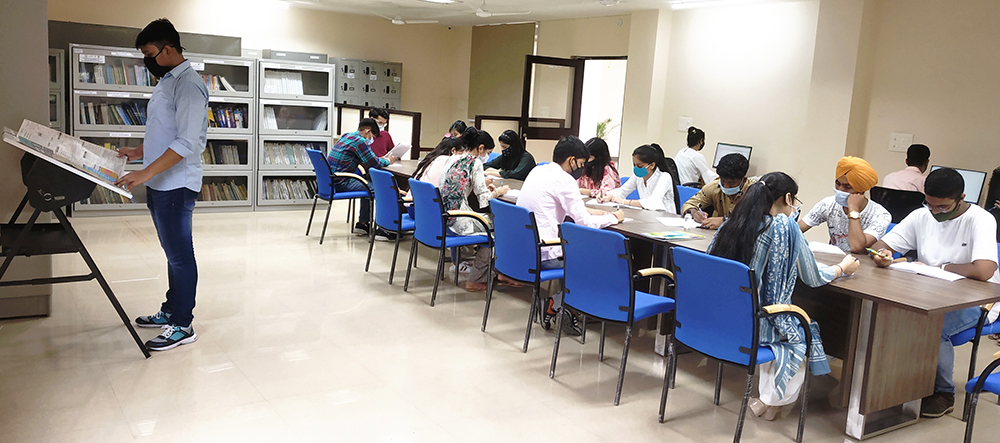 |
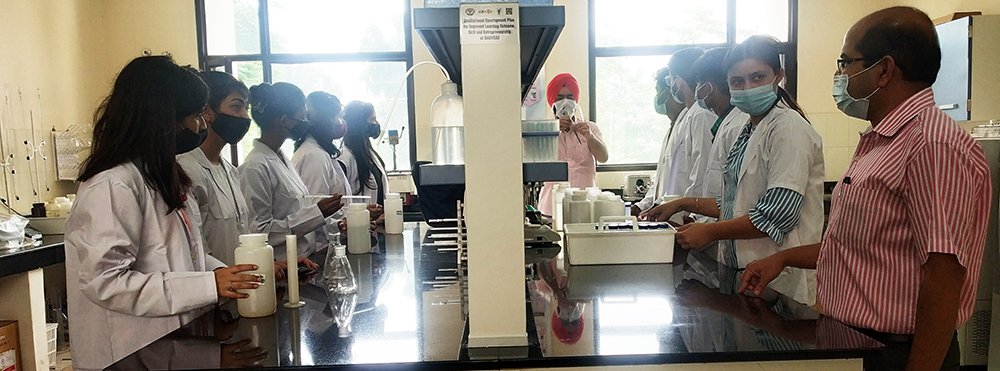 |
| Seminar Room | College Library |
Fisheries Resource Management Lab |
Faculty Detail
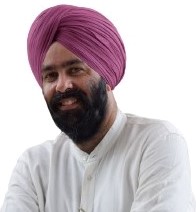
Dr. Prabjeet Singh
Designation : Deputy Director (Training)
Contact Address : Department of Fisheries Resource Management, College of Fisheries, Guru Angad Dev Veterinary & Animal Sciences University, Ludhiana, Punjab 141004
Telephone : 0161-2414061
Mobile : 8289027508
Email : prabjeetsingh@gadvasu.in, prabjeet29255@yahoo.co.in
Academic Credentials
- B.F.Sc
- M.F.Sc (Fisheries Resource Management/Fisheries Science)
- Ph.D (Fisheries Resource Management)
- Visiting Research Fellow, Centre of Excellence in Seafood Science and Innovation, Faculty of Agro-Industry, Prince of Songkla University, Hatyai-Thailand.
Teaching appointments
- My teaching interests include Fisheries Resource Management, Taxonomy of Shell and Finfish, Fin and shell fish breeding, Population dynamics and Stock Assessment, Limnology, Marine Fisheries, Fisheries Regulations, Fish Biology, Fisheries Regulations, GIS and Remote sensing for fisheries management and Inland Fisheries at Undergraduate and Post-Graduate level.
Other appointments
- Member College Disciplinary Committee
- Member Anti-ragging Squad
- Member College Academic Affairs Committee
- Member Secretary College Extension Committee
- Chairman College Placement Committee
- In-charge Water Quality Lab
- CoF Nominee for University Extension Committee
- CoF Nominee for creating database of Alumini network
- Member University level committee on developing modalities of Public Private Partnership mode
- Member state level committee for promoting shrimp culture in Punjab
- Member University Prospectus Committee 2019-20 & 2021-22
- Life member “Institute of Scholars” Bengaluru, Karnataka
- Life Member Professional Fisheries Graduates Forum
- Life Member Society for Biological and Rural Development
- Life member of International Association for computer science and information technology, IACSIT, 9 Jurong Town Hall Road HUB, Singapore, 609431
- Life member “Indian Society of Remote Sensing”Dehradun, Uttrakhand.
- Life Member Society of Life Sciences, Satna M.P
Area of research
- Immunomodulation in Fin and Shell Fish, Hydrobionts and their commercialization, Collagen and Gelatin from Fish waste, Aquatic Resource Management using GIS and Remote sensing, Development of complete package of practices for brackish water shrimp (Litopenaeus vannamei) farming in Inland Saline waters of Punjab, Stock assessment and population dynamics studies of reservoirs of Punjab and Himachal Pradesh, Fish biodiversity of water bodies of Punjab, Pollution studies of water bodies of Punjab with fish as a biomarker with emphasis on heavy metal and pesticide pollution, Stock variability among riverine and domesticated fish population.
Ongoing projects
|
Sr. No. |
Name |
Funding Agency |
Year of Start |
|
1. |
Validation and demonstration of shrimp farming technology for inland salt affected areas of south west districts of Punjab |
RKVY |
2022 |
Research honours awards
- Young Scientist Award by Society of Krishi Vigyan
- Honorary Fellowship by Society of Life Sciences (FSLSc), Satna Madhya Pradesh
- Visiting Researcher Fellowship under “Reinventing University Program” by Centre of Excellence in Seafood Science and Innovation, Faculty of Agro-Industry, Prince of Songkla University, Hatyai-Thailand
- Research Excellence Award by Institute of Scholars
- Junior Young Scientist Award by Society of Biological and Rural Development
- Recipient of Thai Government Scholarship for pursing research at Prince of Songkla University, Thailand
- Received UGC Junior Research Fellowship (JRF) and Senior Research Fellowship for Ph.D.
- Appreciation certificate as “Outstanding Performer” in 21 days winter School held at CIFT, Kochi (5th to 25th, January,2018)
- Appreciation awards for organising several webinars under IDP, NAHEP-ICAR project at GADVASU
- Excellence in reviewing by several peer-reviewed journals.
No of publications
| Research: 35 | Extension: 26 | Books: 04 | Manuals: 03 |
|---|
Publication
- Masram,V., Singh,P., Datta, S.N., & Tewari, G.(2022). Length Weight Relationship and Condition Factor of Labeo rohita (Ham.) Collected from Domesticated and Riverine Habitats.Indian Journal of Ecology, 49(3),869-872. (NAAS :5.79)
- Singh, P., Tyagi, A. & Naveen, B.T. (2020). Impact of Shrimp Farming Technology for Economic Upliftment of Rural Societies in Inland Saline areas of Punjab. Journal of Krishi Vigyan: Special Issue, 172-179 (NAAS:4.55)
- Kaur, S. & Singh, P. (2019). Analysis of heavy metals in water, sediment and selected fishes of River Sutlej, Punjab, India. Journal of Environmental Biology, 40, 322-327 (NAAS:6.78, Impact Factor:0.719)
- Kaur, N. & Singh, P. (2018). Studies on Persistent organic pollutants residue in water, sediment and fish tissues of River Sutlej. Journal of Environmental Biology, 40, 258-264. (NAAS:6.78, Impact Factor:0.719)
- Kaur, S., Singh, P. & Hassan, S.S. (2018). Studies on Gonado-somatic index (GSI) of selected fishes of River Sutlej, Punjab. Journal of Entomology and Zoology Studies, 6, 1274-1279. (NAAS: 5.53)
- Kaur, S. & Singh, P. (2017). Seasonal Variations in Water Quality Parameters of River Sutlej around Ludhiana as Affected by Pollution. Research Journal of Agricultural Sciences, 8, 324-328. (NAAS: 4.54)
- Kaur, N. & Singh, P. (2017). Gonadosomatic Index (GSI), Gastrosomatic Index (GaSI), Hepatosomatic Index (HSI) and Condition Factor (K) of Selected Cyprinid Fishes of River Sutlej in Response to Pollution. Research Journal of Agricultural Sciences, 8, 294-299. (NAAS:4.54)
- Singh, P. & Benjakul, S. (2017). Extraction and characterisation of gelatin from the skin of striped catfish (Pangasianodon hypophthalmus) and studies on its colour improvement. African Journal of Biotechnology,16,1-9.
- Singh, P. & Benjakul, S. (2011). Isolation and characterization of collagen extracted from the skin of striped catfish (Pangasius hypophthalmus).Food Chemistry, 124, 97-105. (NAAS:13.51, Impact Factor :7.514)
- Maqsood, M., Samoon, M.H. & Singh, P. (2009). Immunomodulatory and growth promoting effect of dietary levamisole in Cyprinus carpio fingerlings against the challenge of Aeromonas hydrophila. Turkish Journal of Fisheries and Aquatic Sciences, 5 (2), 111-120. (NAAS:7.26, Impact Factor :1.264).
